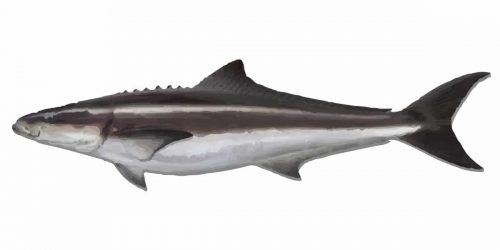Cobia Rachycentron canadum
Cobia are a fantastic gamefish worldwide, they are a tough adversary and take all kinds of lures.
Cobia (Rachycentron canadum) is a fish species that can be found in the coastal waters of Australia, particularly in the northern parts of the country. It is a large, predatory fish that is known for its fighting ability and its delicious flesh, making it a popular target for recreational fishers.
Cobia can be caught using a range of techniques, including trolling, casting, and bait fishing. Popular baits for cobia include live baits such as herring, squid, and mackerel, as well as soft plastic lures and jigs.
Cobia are often found in offshore waters, particularly around reefs, wrecks, and other underwater structures. They can also be found in estuaries and bays, particularly during the warmer months of the year. They are a highly migratory species, and can move long distances along the coast.
When targeting cobia, it is important to use heavy tackle, as they are a powerful fish that can put up a strong fight. A heavy spinning or baitcasting rod, with a reel that is capable of holding a large amount of line, is typically used to catch cobia.
Cobia Migration, when to target them
While cobia can be found in Australian waters year-round, their migration patterns can vary depending on the time of year and oceanographic conditions.
In general, cobia tend to move northward during the warmer months, and southward during the cooler months. During the summer months (December to February), cobia can be found in northern Australian waters, particularly around the Great Barrier Reef and the Northern Territory. As the weather cools, they tend to migrate southward along the coast, and can be found in waters off the coast of New South Wales, Victoria, and South Australia during the winter months (June to August).
Cobia are known to follow oceanic currents and eddies, which can impact their migration patterns. For example, the East Australian Current, which flows southward along the east coast of Australia, can bring warm waters and increased fish activity, including cobia, to southern waters during the summer months.

